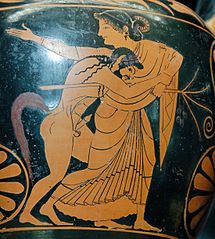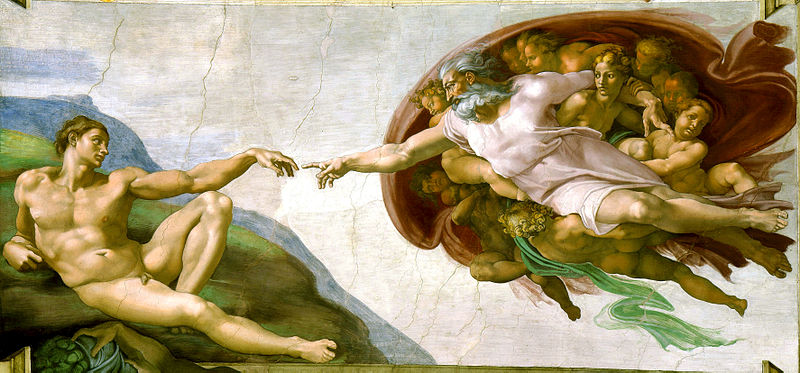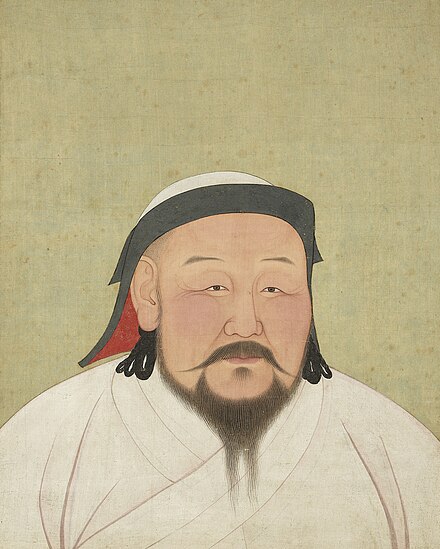Most people in Western liberal societies think that democracy is a good thing, especially when compared to the alternatives. People generally like to be self-determining, and democracy seems to be the governmental structure that is most conducive to these aims, as opposed to various forms of totalitarianism.
This is all well and good. I'm a fan of democracy myself. However, there seems to be a sense in which people take democracy for granted. They just assume that it's a form of government that will run by itself and steer us toward the most optimal state of affairs. It's similar to a laissez-faire perspective on the free market.
This attitude is mistaken. Democracy is designed to execute the will of the people. How well it achieves the best ends for society will depend on the moral and intellectual quality of the citizens participating in the system.
This is the part that many people take for granted. They, either explicitly or implicitly, shirk their responsibilities as citizens. Such responsibilities include more than just going out to vote and paying your taxes. The responsibility of a good citizen also includes being the type of individual that is capable of making well informed and well reasoned judgments, and thus also includes the responsibility of training to become that type of individual.
Without this ability to think independently and to participate in rational discourse, democracy fails and becomes a more subtle form of totalitarianism.
In totalitarian forms of government, either one or a some group of individuals coerce the citizens to behave in some way. Usually the level of coercion, and the extent of activities to which it is applied, is seen as way beyond acceptable. People like to think that they have control over their own lives, and not being explicitly coerced into behaving a certain seems sufficient for having that control.
However, there are at least two ways for someone to not be in control of their lives. There's the explicit, gun to your head type of coercion. However, there is a sneakier to get someone to do what you want, and that's through various forms of psychological manipulation.
Someone who shirks their responsibility as a citizen and fails to think critically about political issues becomes more susceptible to various forms of psychological manipulation. In being psychologically manipulated, they lose control over their lives and are no longer expressing their own will, but rather expressing the will of those doing the manipulating.
The sad thing is that those who being manipulated don't know that they are being manipulated. They still believe that they are in complete control over their lives. There's a term for this kind of phenomena from Jean Paul Sartre called "bad faith" (also translated as self deception). Bad faith occurs when individuals fail to see what is actually true about themselves and instead act on false beliefs about themselves.
Members of democratic societies who fail to participate in rational discourse or deliberation act in bad faith. The believe themselves to be free citizens, when they are likely to be subject to manipulation. In a significant sense, they are no longer really free.
Monday, September 21, 2015
Saturday, September 19, 2015
Humans and other animals
There's the familiar debate about the relationship between human beings and other life forms on this planet. In particular, people wonder about the difference between human beings and everything else. What does this difference amount to?
Generally speaking, there are two types of differences: differences of degree, and differences of kind.
Differences of degree occur when you have two things that belong to some relevant category, but differ in magnitude with respect to some variable shared by both things.
For example, a pin prick and a migraine headache are similar in that they are both types of pain. However, they differ with respect to the intensity of the pain.
Differences in kind occur when you have two things that don't both belong to the same relevant category. For example apples and rocks differ in kind if the relevant category is fruit.
Having set this up, how do we describe the difference between humans and other life forms? Is the difference primarily of degree or of kind?
Most everyone agrees that humans share a lot with other animals. Humans are carbon based life forms that are sustained via air, water, food. Human are born, reproduce, and die. Furthermore, humans share a lot with mammals. Humans are warm blooded, have body hair, reproduce sexually and via birth.
Some, however, go further and say that although there are lots of similarities between humans and other animals, humans still differ in kind. What does this difference amount to?
Traditionally this difference amounted to something non-physical, like a soul or a spirit. Human beings are somehow made in the image of God, whereas other animals are not. This difference is significant in that it is normative, rather than merely descriptive. According to many religious traditions, human beings are different in a way that makes them "higher" or "better" than other life forms on earth.
Nowadays there are more people who don't affiliate with a particular religious tradition. Among these, many reject the idea that there is some non-physical aspect of humanity that separates it from the rest of life on Earth.
Suppose that we accept the claim that there is no difference in kind between humans and non-human life. There's an issue that we have to deal with. We observe lots of things that humans do that other animals either don't or can't do. Here's a sample list.
Advanced mathematics
Poetry
Moral reasoning
Philosophy
Classical music
Abstract art
Religion
Travel to outer space
Engage in nuclear warfare
Make iPhones
Form democratic governments
What explains the fact that humans do these things and other animals don't?
One route is to say that the difference between humans and other animals is that of degree. Animals can communicate, cooperate, and build stuff. They just can't write poetry and build skyscrapers. Perhaps the difference between humans and animals is more like the difference between an adult human and an infant.
Explanation by difference of degree is kind of satisfying, but not wholly. First, the gap in intellectual ability between humans and whoever's in second place (gorillas, chimpanzees, dolphins, etc) seems incredibly vast. Why are humans so far ahead of everything else?
Second, we don't see any other species doing anything remotely close to what humans are doing. Why is it that just humans are the ones that figured out how to get to the moon? Why haven't other species developed in similar ways?
Friday, September 18, 2015
Art across time and space
Check out these pictures.
The first is from the Lascaux Cave in France, and is estimated to be about 17,300 years old. The second was painted on a jar in Greece around 520 BC. The third was made in Italy in 1338. The fourth was also made in Italy in 1511. Why do they all look so different? Compare these to the following:
The first was painted in China in 1294. The second was painted in Japan in 1793. These paintings look really different from the European paintings shown above. Why?
I'm assuming that one goal of art is representation. None of subjects in any of these paintings really look anything like the people that you see directly with your own eyes. Why is that? Are these depictions supposed to convey something more than mere representation? What else is included?
The first is from the Lascaux Cave in France, and is estimated to be about 17,300 years old. The second was painted on a jar in Greece around 520 BC. The third was made in Italy in 1338. The fourth was also made in Italy in 1511. Why do they all look so different? Compare these to the following:
I'm assuming that one goal of art is representation. None of subjects in any of these paintings really look anything like the people that you see directly with your own eyes. Why is that? Are these depictions supposed to convey something more than mere representation? What else is included?





From_Bijin-ga_(Pictures_of_Beautiful_Women)%2C_published_by_Tsutaya_Juzaburo_-_Google_Art_Project.jpg/440px-thumbnail.jpg)